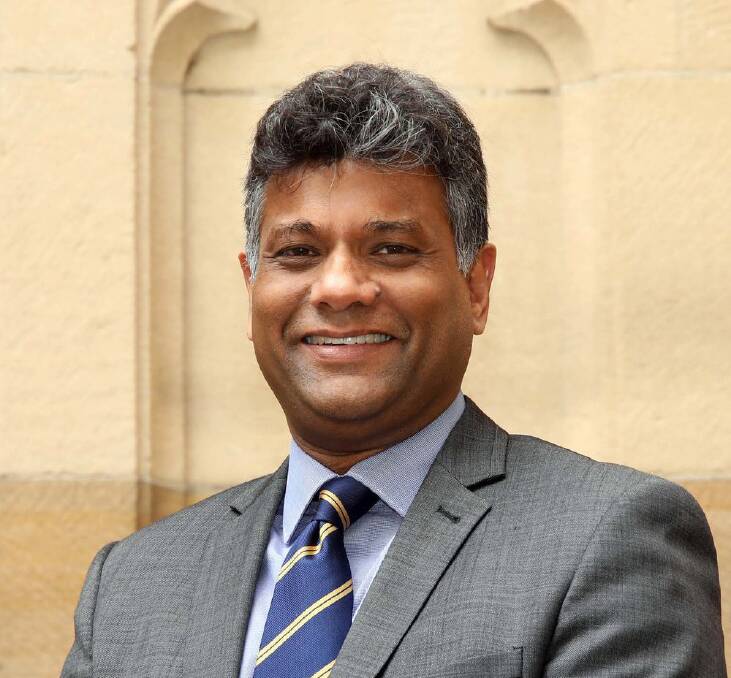
Earlier this month, Kanishka Raffel was elected the next Anglican Archbishop of Sydney.
Subscribe now for unlimited access.
$0/
(min cost $0)
or signup to continue reading
There are many reasons why his election is noteworthy, yet one fact has particularly grabbed people's attention.
As one major newspaper reported the result: "Anglicans elect migrant, former-Buddhist, person of colour as Archbishop of Sydney"
Kanishka is not the man many people might expect to end up as Archbishop of Sydney.
Born of Sri Lankan parents and raised a Buddhist it was not until university that he first encountered Jesus when a friend gave him a copy of John's Gospel.
"Having spent the year reading Buddhist scriptures, I was very struck by how different the Gospel of John was.
It was transparently historical, clearly talking about a particular man, in a particular place at a particular time and the person of Jesus just emerged from the pages with vitality and vibrancy, and he was unusual.
He wasn't like the Buddha. He had friends and enemies. He got into verbal skirmishes and worse, in the end, and so I found his character intriguing and provocative and compelling.
And ultimately, of course I decided I was for him."
I can understand why many people are surprised that someone of Kanishka's background could rise to that position.
Yet I must admit that I find this aspect of his rise rather unremarkable.
The fact is that it has been a long time since the Christian church could legitimately be called a predominantly 'white' organisation.
It has been a long time since the Christian church could legitimately be called a predominantly 'white' organisation
Well over half of the world's Anglicans reside in Africa, not England or North America.
Far more Roman Catholics can be found in Latin America than in Europe or anywhere else.
No nation produces and sends more missionaries abroad than South Korea.
Indeed, in the increasingly cosmopolitan city of Sydney you could enter a Church of any denomination and find congregations as diverse as the communities they serve.
People from across the spectrum of race, wealth, education, age, ability and every other category into which we like to pigeonhole people are brought together by the gospel message of Jesus Christ.
I was not surprised, then, to hear that Kanishka Raffel had been elected Archbishop of Sydney. Nor was I surprised to speak with friends involved in the election Synod and be told that his ethnicity was not a factor in the Synod's discussion of the candidates.
Yet I must admit some sadness at how his election has been reported. Why should people find it remarkable that an immigrant might convert from Buddhism and rise to become an Archbishop?
I can only assume that at least part of the problem is that people have been given a picture of what it means to be a Christian which they can't imagine people like Kanishka fitting into.
Even sadder is the fact that I have found that many people stay away from church because they can't see themselves fitting into the picture they have been given of what it means to be a Christian.
In reality Jesus breaks down every dividing wall which people want to put up. None of it can either commend us to him, nor keep us from him. The only prerequisite for coming to Jesus is to admit that we all need mercy and forgiveness, and that these are found in Jesus alone.
This is a truth which has changed the life of the new Archbishop along with countless millions of others who have come to realise it. And this same truth will do the same for anyone who will grasp it.
As the new Archbishop said upon being elected;
"You have elected a weak servant, and you too, are but weak servants. But we have a mighty Saviour - full of grace, sovereign, sufficient, supreme; having the supremacy in all things so that through him God was pleased to reconcile all things to himself by making peace through his blood shed on the cross."
Have your say
Got an opinion you want to share? Click here

